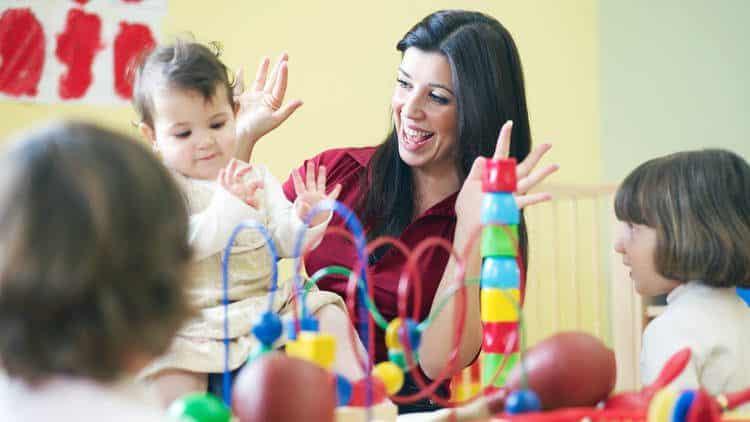These principles have proven to be trustworthy guides in our efforts to be the best we can for babies, families, each other, and our selves.
How you are and what you do become models for how professionals and parents relate to each other, and how adults relate to the infants and toddlers in their care.
Our conviction that how you are is as important as what you do with very young children and their families has developed over several decades of working, studying, and teaching in the growing field of infant-family development. During this same period, we have discovered a handful of principles of interaction that have proven to be trustworthy guides in our efforts to be and do the best we can for babies, families, each other and our selves.
The Principles
1. Behavior is meaningful. The newborn’s gaze, the toddler’s “No!”, an adult’s avoidance of paperwork (or need to complete it well before the deadline), the way a grandfather sings to a grandchild who speaks a different language from his own—all human behavior is full of meaning, and can be understood.
Because behavior results from the interaction of many factors—including temperament, developmental stage, level of knowledge or skill, cultural background, and expectations of oneself and other people—the same behavior can have very different meanings. We cannot assume that our initial understanding of the meaning of another’s behavior is correct, or complete. We must also realize that our own behavior is likely to mean different things to different people.
2. Everyone wants things to be better. Everyone knows what he or she wants, and some people think they know what other people should want. In fact, you can’t determine for other people what they should want. But you can try to understand how a child or adult’s specific wants (or desires or demands) stem from their basic human needs for safety, connection, meaning, and mastery. You can offer choices and explore possibilities.
3. You are yourself and your role. A Spanish philosopher once observed, “I am myself and my circumstances.” How you are about to be and what you are able to do in your life depend on the strengths and limitations you were born with; the experiences you have had, how you have understood those experiences; the resources available to you; and the culture, community, and times you live in.
The key to quality in any service or program for very young children is the quality of relationships.
How you are and what you do in a specific role—as a provider of care for a group for very young children, as a partner to a particular parent in the care of a particular baby, as a supervisor, as the director of a program or agency, or as a teacher—depend on your knowledge, skills, attitudes, the human and material resources available to you, and expectations (yours and other people’s) of you in that role. When expectations differ, or conflict with what is possible, roles need to be clarified.
4. Don’t just do something—stand there and pay attention. In work with infants, toddlers, and families, less is usually more. The impulse to protect, provide, or even to rescue is strong where babies or vulnerable adults are concerned. But we are more likely to make a positive difference in the development of young children and families if we refrain from “doing” and take time first to observe carefully; consider the many possible meanings of what we have seen and heard; seek more information; and ask questions that demonstrate our respect, interest, and capacity for empathy.
5. Remember relationships! The key to quality in any service or program for very young children is the quality of relationships-relationships between the baby or toddler and his or her parents, between child and caregiver, between child and other children, between professionals and family, and among adults in the program. It is not an easy task to establish and sustain the deep, responsive, and respectful relationships among adults and children that are the hallmark of quality, but it is an essential one.
6. Do unto others as you would have others do unto others. We call this the “platinum rule” of training, supervision, and mentorship. How you are and what you do with colleagues, supervisees, and students becomes a model for how professionals and parents relate to each other, and how adults relate to the infants and toddlers in their care.
Adapted from: Pawl, J., & St. John, M. (2000), How you are is as important as what you do… in making a positive difference for infants, toddlers, and their families. Washington, DC: ZERO TO THREE.



